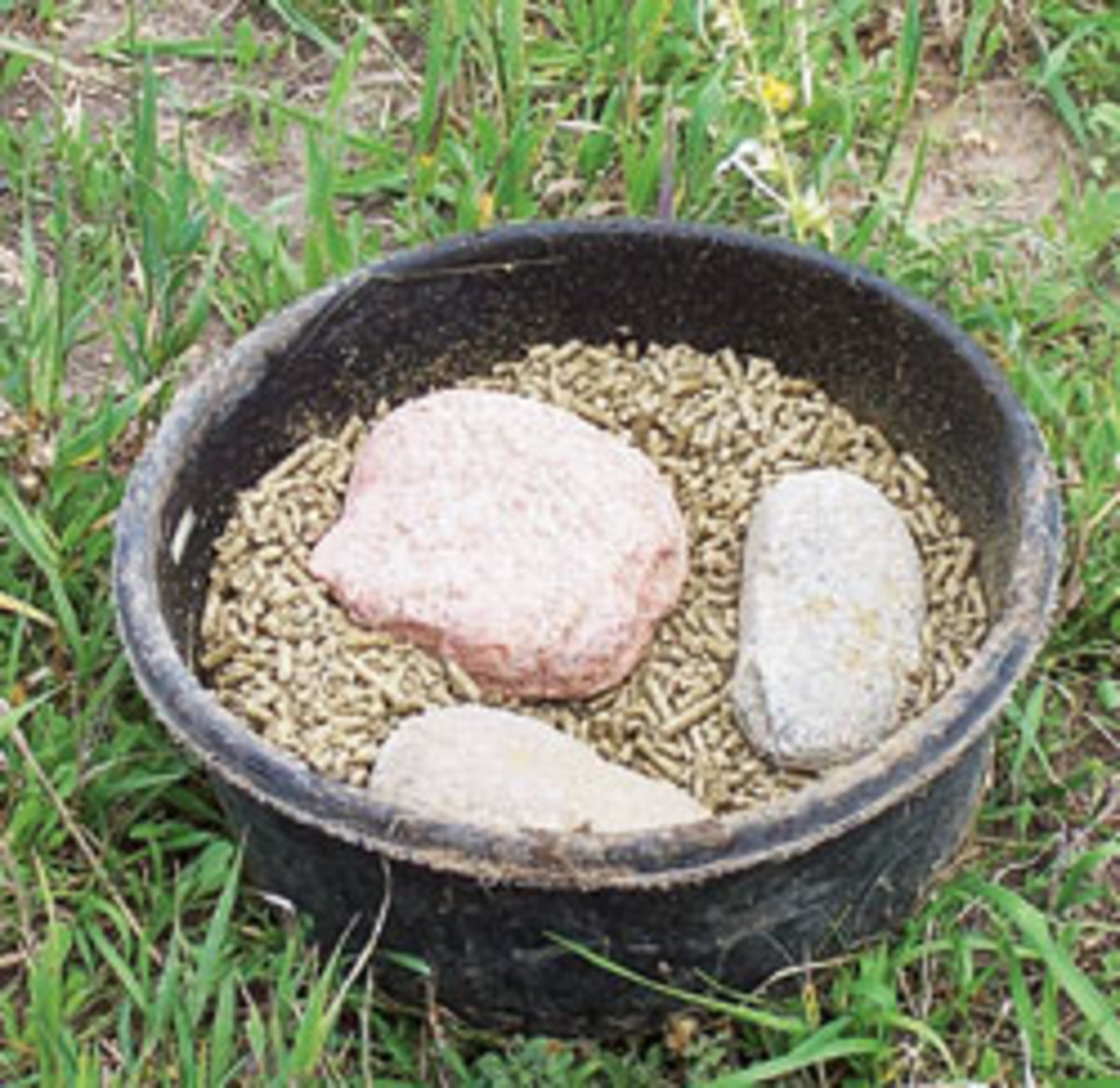
“Choke” is a common term used for an obstruction of the esophagus in horses. It really has nothing to do with the respiratory system as one might think from the word. However, considering the symptoms a horse expresses with this condition, it’s easy to understand how the term came into use.
The obvious sign of this condition is a frothy fluid with food particles coming out of both nostrils of the horse. Some horses will also have a rather anxious expression due to discomfort from a spasm of the smooth muscle of the esophagus around the obstructive bolus of food. There will be a history of recent feeding.
The condition comes about due to a horse eating quickly and attempting to swallow a bolus of food that gets lodged in the upper esophagus. The type of feed, aggressive swallowing and the fact that a horse’s esophagus is rather small are causes of the problem. As the horse continues to salivate, and there is no place for the saliva to go due to the obstruction, there are sometimes copious amounts of the frothy fluid regurgitated through the nostrils.
While the symptoms can be quite alarming, most cases resolve spontaneously in an hour or two. Just keeping the horse away from feed and water until the symptoms subside is usually adequate. Sometimes mild sedation or anti-spasmodic, smooth-muscle relaxant drugs can be beneficial.
I have often been questioned by an anxious owner if we shouldn’t just push the obstruction away by passing a stomach tube. In my opinion, this procedure is contraindicated due to the spasm of the wall of the esophagus around the obstruction. You may be traumatizing the esophagus rather than simply clearing the obstruction.
There are horses that develop a stricture or narrowing of the esophagus from scar tissue and have recurring episodes. These horses can be helped by managing their feeding. Slowing down their eating by putting grain or pellets in a large, flat-bottomed feeder with some large, smooth rocks will keep them from “bolting” their food. It’s my empirical observation that alfalfa is the most common offender among the hays for causing this problem.










